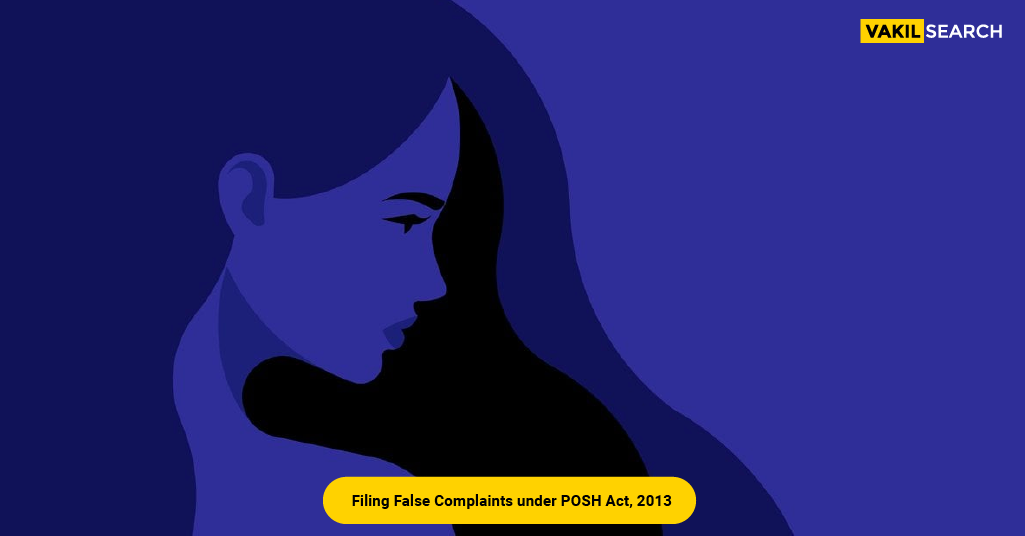The Prevention of Sexual Harassment (POSH) Act, 2013 is an essential legislation in India that mandates workplaces to create a safe and secure work environment for all employees, particularly women. With the help of Posh Training at the Workplace, a thorough manual on creating an ICC and punishing false accusations, you can learn how to prevent sexual harassment at work.
What are False Complaints?
A false complaint is one that was made with the intention of defaming the accused, intentionally presenting false information or proof, or both. A false complaint not only defeats the intent of the POSH Act, but it also harms the accused severely, leading to loss of reputation, emotional pain, and career disruption. There should be serious action taken against the false complaints. It is fundamental to realise that False Complaints Under Posh Act can happen in any business, and it is as important to take the necessary precautions to avoid them.
Who Gets Punished?
- According to the POSH Act, anyone who files a false charge of sexual harassment, knowing that it is false, or presents fake proof, intending to hurt the accuser, will be given severe punishments.
- Fake complaints always bring disgrace to the organisation or specific individuals. These fake complainants risk not only being prosecuted in court but also being disciplined by the organisation.
- It is important to remember that if the ICC determines that the complaint was submitted with fraudulent intent, the complainant could still be punished even if the accused is found not guilty or acquitted.
How Can ICC Decide Whether a Complaint is False or Not?
- The ICC (Internal Complaints Committee) is the responsible body which is in charge of looking into sexual harassment claims and judging whether they are true or not.
- To ascertain the legitimacy of the complaint, the ICC must adhere to due process and carry out a comprehensive investigation.
- The accused should be given a fair and reasonable opportunity to state their case and submit evidence to support their innocence, according to the ICC.
What Are the Penalties of False Complaints?
- False reports of sexual harassment are subject to harsh penalties under the POSH Compliance Act.
- A false complaint may face legal repercussions, including up to two years in prison or a fine of ₹1 lakh, or both.
- The organisation may also take disciplinary action against the complainant, which could result in termination of employment.
How Can an Organisation Prevent False Complaints?
Organisations can take several measures to prevent false complaints of sexual harassment. These include:
- Conducting regular POSH training for employees, which includes information on the consequences of making false complaints.
- Encouraging employees to report incidents of sexual harassment promptly.
- Forming an ICC that is fair, unbiased, and provides a safe environment for complainants.
- Providing support and assistance to the accused during the investigation process.
- Implementing strict policies and guidelines to ensure that all complaints are investigated thoroughly and impartially.
When is a Complaint Categorised as False?
If a complaint is submitted with a wrong purpose, contains false statements or supporting documentation, or is made in an effort to damage the reputation of the accused, it may be deemed false. To ascertain the veracity of the accusation and guarantee that the accused is not harmed or harassed, the ICC must conduct a comprehensive investigation.
What Happens When There’s No Eye-Witness?
The absence of an eyewitness does not necessarily mean that the complaint is false. The ICC should consider all the evidence available, including the complainant’s statement, circumstantial evidence, and any other relevant evidence, to determine the truthfulness of the complaint. The ICC should also provide the accused with a fair and reasonable opportunity to present their case and produce evidence to prove their innocence.
Conclusion
It is imperative that people and businesses are informed that violators of the Prevention of Sexual Harassment (POSH) Act in India face consequences. This may have a detrimental effect on the accused’s career and reputation. Therefore, it’s crucial that businesses have a robust internal complaints process in place and that people are informed of the consequences of filing a false complaint in accordance with the act. Vakilsearch can provide legal services that may help with POSH complaint filing and clarity on filing False Complaints Under Posh Act.
FAQs
What is the punishment for filing a false complaint under the POSH Act?
The punishment for filing a false complaint under the POSH Act can range from a warning to termination of employment, depending on the severity of the offence.
How can an organisation prevent false complaints under the POSH Act?
Organisations can prevent false complaints by ensuring that their employees are aware of the consequences of filing a false complaint, by having a robust mechanism in place for investigating complaints, and by promoting a culture of trust and transparency in the workplace.
What happens if someone is falsely accused under the POSH Act?
If someone is falsely accused under the POSH Act, they have the right to defend themselves and prove their innocence. The Internal Committee will investigate the matter and arrive at a conclusion based on the evidence presented.
Can someone be punished for making a genuine complaint that is not proven?
No, someone cannot be punished for making a genuine complaint that is not proven. The Internal Committee will investigate the matter and arrive at a conclusion based on the evidence presented.
Can an organisation take legal action against someone who files a false complaint?
Yes, an organisation can take legal action against someone who files a false complaint under the POSH Act. The organisation can also file a defamation suit against the individual if the false complaint has caused damage to the organisation's reputation.
Also, Read:









